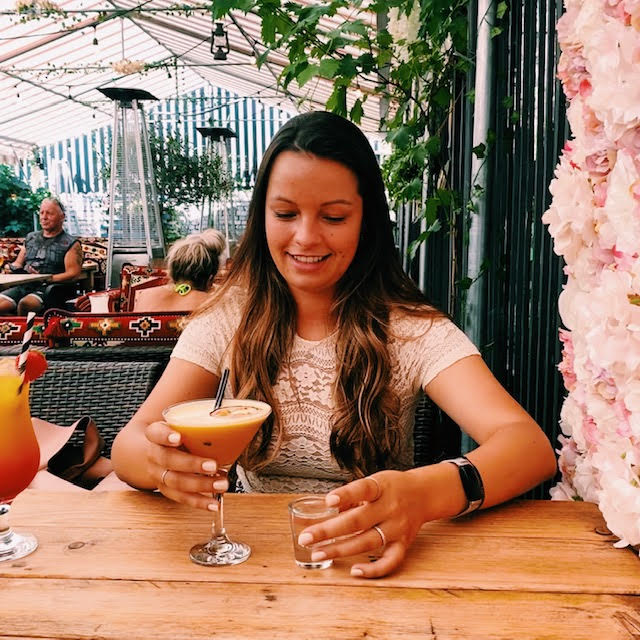Effects of Your Physical Environment

Through the study of human psychology, we can learn many things about how our brains work, the processes that are constantly pulsing and the way we respond to cues. One thing I never thought about until I studied psychology was the effect of your physical environment and the way our brains respond to it.
In so many ways, our brains are fascinating things. We have thousands of chemical reactions that help us to focus, see, feel, think and perform.
A large portion of these reactions allow us to be aware of our surroundings and respond to them in a way we deem appropriate. We build this knowledge consciously and subconsciously to help us in decision making, reactions, balancing and keeping in touch with our biological clocks.
Functioning in Our Physical Environment
To function properly in our physical environment, we must have the most basic needs like air, water and space. We also need stimuli like light, gravity, noise and physical objects so that we can respond to them.
Take light for example. If I was reading a book, I’d have to sit in a well lit area so that I can read clearly. If my eyes begin to strain, my brain will tell me that I need to turn on a light or move into a brighter space to prevent a headache or not being able to see the words properly. My brain already knows where the light switch is in my house or where the lamp is.
There are many things like these stimuli that can prevent us from functioning effectively in our environment. These distractions can be specific to you and your triggers.
Some examples of these are: clutter, heat, noise, smell, shapes, colours and people.
Association & Learned Responses
We also take in cues from our physical environment through association and learned responses. When we crawl into bed at the end of the day, it tells our brains to prepare for sleep. When we lie in bed for a long period of time, scrolling through our phones or watching television, it confuses our brain as they’ve associated getting into bed with sleep.
There have been many psychological studies about learned behaviour and our physical responses from cues. This convincing data makes sense in the way we behave, pick up on habits and react to our surroundings.
The sound of your letter box opening tells you your post has been delivered.
The smell of bleach means someone has been cleaning.
The sound of a car pulling into your drive means your partner has arrived home.
We learn all of these things through experiences and link all of these things to the outcome of this experience.
In this same way, our physical environment plays a big part in how our brain thinks. With many people working from home more nowadays, it has proved that having a designated work area in your home is more effective than working on your sofa.
Your brain will link your workspace to working and this will help you to focus better than if you tried to work in your front room where your brain associates this space with relaxation time.
Atmosphere
Because we are such social beings, we also rely on atmosphere, especially when we’re in a social setting, to create the best physical environment for the situation.
We react and respond to others around us depending on their mood, attitude, aura and chattiness. The people you are closest to are most often those who calm you, who you feel at ease around and who bring a good atmosphere with them.
If you feel uncomfortable in someone’s company or in the surroundings you’re in, you’re more likely to be on ‘high alert’ which is common with anxious people. Your brain is looking out for threats or anything that could trigger a response. This makes your body tense as well as your mind which restricts how quickly and easily you calm down.
This is most common when you’re around people you don’t know, in big crowds or around somebody who often causes you to feel negatively. The atmosphere in your physical environment will change and affect the way you function.
Your atmosphere can also depend on whether there is someone around you at all. If you are trying to relax or concentrate, you may benefit from spending this time alone where there are as little distractions as possible. I sometimes feel self conscious in these cases which switches my mind from the goal to the awareness of my surroundings.
That person could also bring along pressure, restrictions and tenseness to the air, especially if it’s someone unfamiliar or of high importance.
Not only does the atmosphere depend on if there is anyone else in your physical environment but also the setting you make for yourself.
Try lighting a candle or switching on your diffuser if you’re wanting to relax. Play some music or put the radio on if you’re being creative.
Take yourself into a quiet, focused setting if you’re working.
Everybody will have different things that will help create the right atmosphere for them. It’s a personal preference so try to find different things that help you in these different environments. See below for some more ideas and aspects to think about.
Objects in Our Physical Environment
In familiar environments, we’re aware of how to get from one room to the other without consciously having to tell ourselves where to turn and what doors to open. In the same way, we know roughly where things are around us too. That’s because we’ve learned where they are already. We’ve been brought to their attention before and visually mapped out where they are located.
Once we’ve focused on these objects, our brains are constantly consciously aware of them. Things like clutter can affect our productivity, especially when we like a tidy space to work in.
I find it hard to concentrate when I see that the carpet needs hoovering, there’s clothes to put away and there are lots of other things that need doing in my surroundings. Often, this means I procrastinate on my to-do list and have to tidy all these things before I can settle down and finally feel satisfied. So if you’re working or trying to concentrate in a space, try to ensure you keep it tidy so your mind doesn’t wander to these distracting tasks.
Colours can also have quite a large effect on how we function. There are colours that our brains naturally respond better to or trigger from more.
Blue is a very soothing colour and so is often associated with keeping calm and relaxed. Colours like red or brighter fluorescent colours keep our brains active and alive. So depending on what purpose you’re using your space for, think about what colours you want to use to make our brains work in the best physical environment.
Different shapes can strangely also have an effect on our minds. Landscapes and art decor can calm your mind, make you feel more at ease and keep your brain feeling creative. Geometric shapes can have the same effect as illusions and make us feel disorientated and affect our sight so think twice before decorating an entire wall with fancy modern paintings.
Having personal possessions in your physical environment can help you to relax in your space. Having a few photos up on your desk at work of your family or your partner can make you smile when you’re feeling stressed, or remind you of what happiness you’ll be going home to. However, sometimes these can be distracting, so use them wisely.
Adding more of your own personal touches to your home will make it feel more like your space. Not adding these things could possibly make you unhappy with where you are. Your home should be somewhere personal which reflects you, your needs, your character and who you want to be at your most vulnerable and comfortable self. The objects in your house should reflect exactly that.
The way you layout and design your physical environment can affect the way you feel and function in your space too. In smaller spaces, it can become overwhelming and stressful when your things are crammed in. Finding the correct way to store your things can help with this.
Keeping a minimal amount of things out of your drawers and other storage areas can help your mind feel less ‘cluttered’ and closed in. Bigger spaces need more going on and it’s important to make it feel right for you and fill it with the right decor.
This is why feng shui is so popular these days. It’s the arrangement of your furniture and belongings that brings harmony and balance to your physical environment.
Whichever way you think about your physical environment, it’s important that you understand the needs and wants of your mind in order to function in the best way that the space is designed for.














